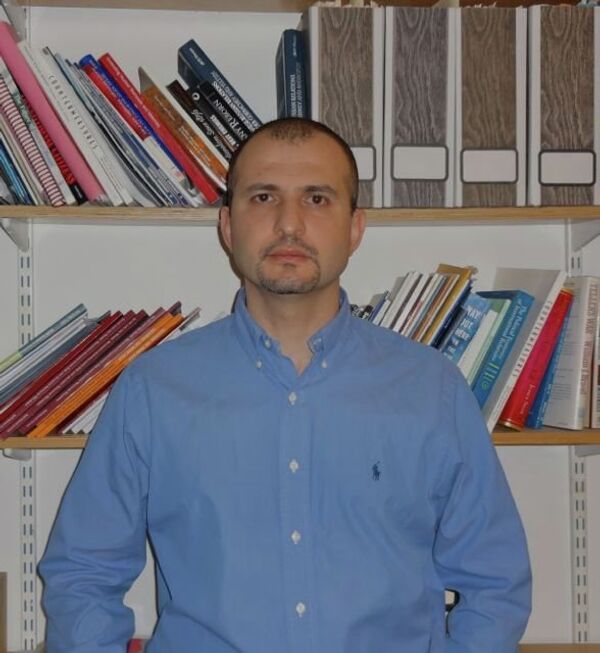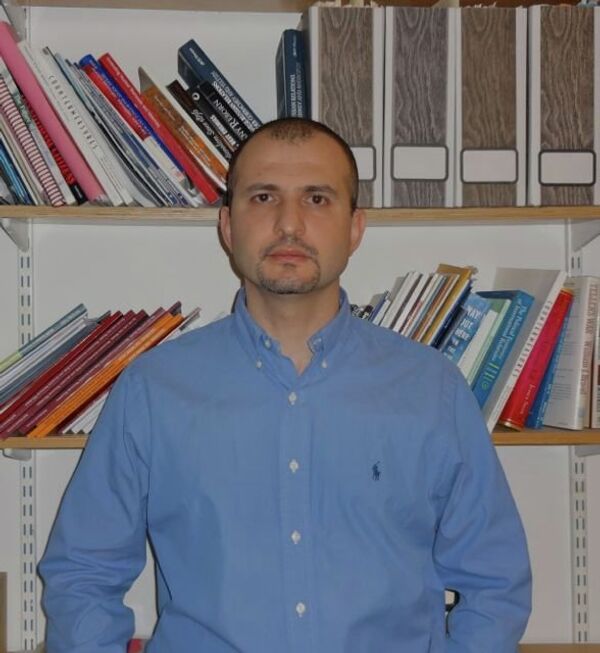
US President Barack Obama’s August 7 decision to cancel the meeting with his Russian counterpart Vladimir Putin reflects the need for a pause in such summits. However, the words the American leader chose to use could provoke a tit-for-tat that would make it hard for the two countries to cooperate, even on issues of mutual interest.
You didn’t need a crystal ball to predict that Obama would cancel summit in Moscow that had been penciled in for next month.
My August 1 column argued that the two leaders simply lacked the deliverables that justify a two-day meeting and, that not even the signing of another strategic declaration on bilateral relations (similar to what Putin and George W. Bush inked in Sochi in 2008) would save the putative September 3-4 summit from flopping. Therefore, I said, Obama and Putin should avoid “meetings for the sake of meetings” and instead instruct their negotiators to work on developing tangible deliverables.
So I was not exactly astounded when US presidential spokesman Jay Carney announced on August 7 that “there is not enough recent progress in our bilateral agenda with Russia to hold a US-Russia Summit.” (That said, I admit I was somewhat taken aback by how close my column came to predicting the US side's arguments for cancellation, after reading the statements by Carney and by Obama's deputy national security adviser Benjamin J. Rhodes who said “we weren’t going to have a summit for the sake of having a summit.”)
Neither was I surprised to read subsequent revelations by Russian diplomats in the Kommersant newspaper, saying that they had actually drafted five documents that were to be unveiled at the summit, including a comprehensive “statement on the development of bilateral cooperation” which made me remember that grand declaration inked by Putin and Bush in Sochi.
What I was rather astonished and disappointed by, however, was Obama's own comments on his relations with Putin, delivered at a news conference as Russia’s defense and foreign ministers were whisked off to the Andrews Air Force base after meeting their US counterparts on August 9.
The first three questions Obama took during the press conference that day were on Russia and NSA leaker Edward Snowden, to whom Russia has granted temporary asylum. Obama's initial remarks were reserved and shrewd.
“It is probably appropriate for us to take a pause, reassess where it is that Russia's going, what our core interests are, and calibrate the relationship so that we're doing things that are good for the United States and, hopefully, good for Russia as well,” Obama said.
Obama also noted that he and Dmitry Medvedev had “made a lot of progress” during Medvedev's presidency and that he later “encouraged Mr. Putin to think forward, as opposed to backwards, on those issues – with mixed success."
But rather than stop after delivering what was undoubtedly an anti-Putin diatribe, albeit one couched in diplomatic terms, Obama went further – offering his assessment of Putin, not just as a state leader, but as a person. “He's got that kind of slouch, looking like the bored kid in the back of the classroom,” Obama said.
“Now it's personal” was my immediate reaction to Obama's newly-unveiled view of Putin “the man.” My second thought was that Putin almost never misses a chance to reciprocate, especially if offended. After all, this is the man who in 2000 reportedly quipped “whoever offends us won’t last three days.”
Yet there is still a chance that Putin won't take it personally, or at least will refrain from returning fire. After all, three days have passed since Obama's August 9 remarks and Putin has – so far – managed to hold his tongue.
Putin’s silence makes me hopeful that the Kremlin would prefer to avoid a confrontation. I also took heart from the conciliatory tone that Russia's foreign and defense chiefs struck after meeting their US counterparts last week, asserting that the current chill in the bilateral relationship won't lead to even a mini-Cold War.
Hopefully, both leaders realize that a vicious circle of rhetorical tit-for-tat would harm both sides.
The US leader may be genuinely disappointed that the reset, which he made a central pillar of his foreign policy, fizzled out after Putin's return to the Kremlin (though any Russia watcher worth his salt would say that, without painful compromises from both sides, the reset was destined to stall after all the low-hanging fruit was picked by Obama and Dmitry Medvedev).
But leaders’ personal grievances should not antagonize the relationship between the two countries, which need each other's assistance to advance their vital interests in such spheres as counter-terrorism and preventing failed states.
Such cooperation falls short of the deep strategic partnership proponents of US-Russian rapprochement so hoped for. Selective partnership on particular issues is better than the comprehensive confrontation that hawks on each side hope for, especially given the two countries’ spoiler potential via-a-vis each other. As the Russian saying goes: Better a bad peace than a good quarrel.
Simon Saradzhyan is a researcher at Harvard Kennedy School's Belfer Center. His research interests include international security, arms control,
counter-terrorism as well as political affairs in post-Soviet states and their relations with major outside powers. Prior to joining the Belfer Center in 2008 Saradzhyan had worked as deputy editor of the Moscow Times and a consultant for the United Nations and World Bank. Saradzhyan holds a graduate degree from the Harvard University.
The views expressed in this column are the author’s alone.
View From the Global Tank: Snowden Has Left the Building: A Gift to US-Russian Relations
View From the Global Tank: Our Changing World Order – the More Options for Cooperation, the Merrier
View From the Global Tank: Appointing Rice, Power Won’t Alter Obama’s Policy on Syria, Russia
View From the Global Tank: Missile Defense Need Not Derail US-Russian Relationship
View From the Global Tank: The Last Chance to Prevent a Mediterranean Somalia
View From the Global Tank: Boston Bombing Puts Spotlight on Security Services’ Failure to Cooperate
View From the Global Tank: Europe Ignores Collective Security System Flaws at Own Peril
View From the Global Tank: Why Nuclear Powers Should Start Walking Toward Global Zero
View From the Global Tank: Russia Needs to Develop Eastern Provinces as China Rises



